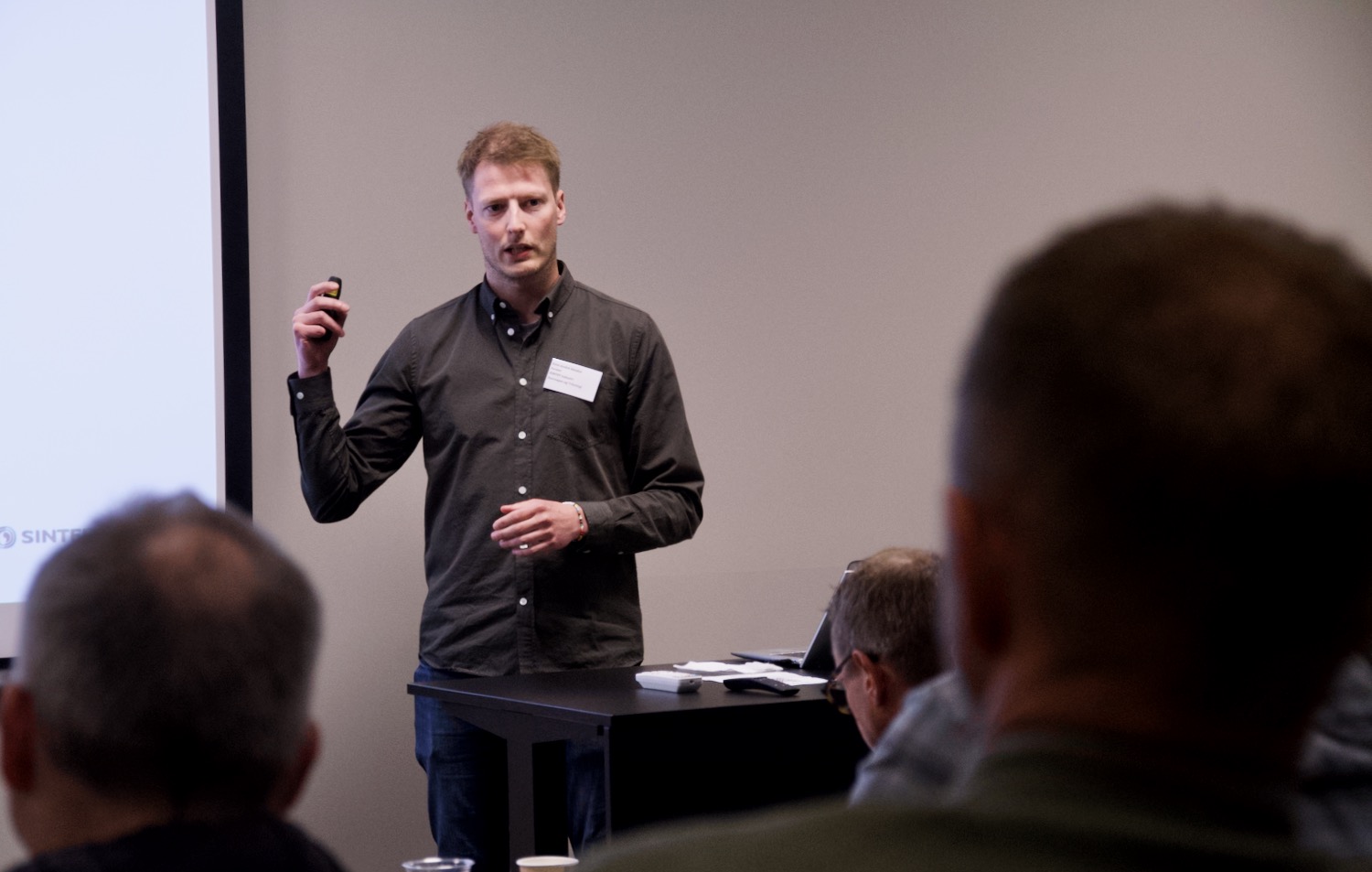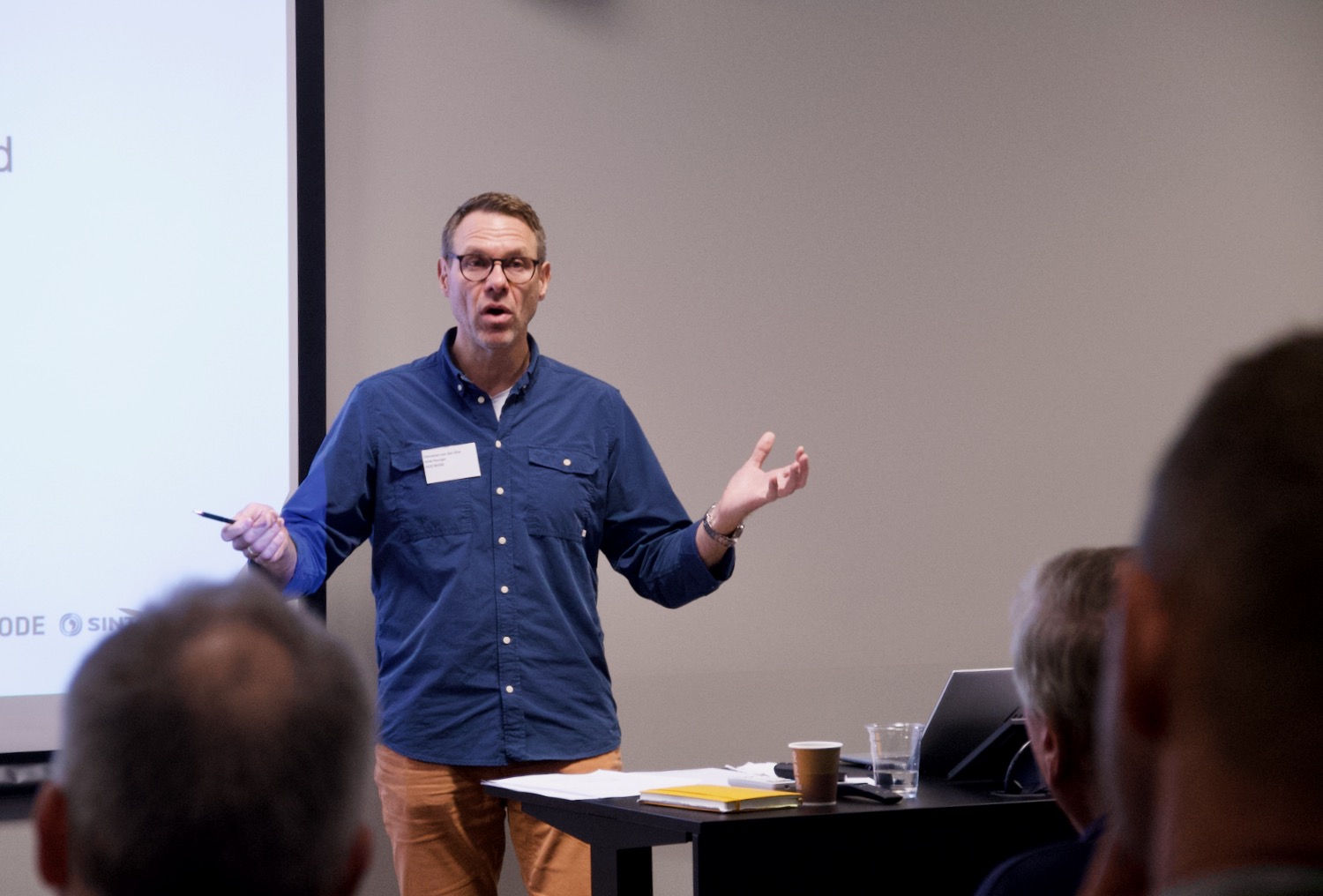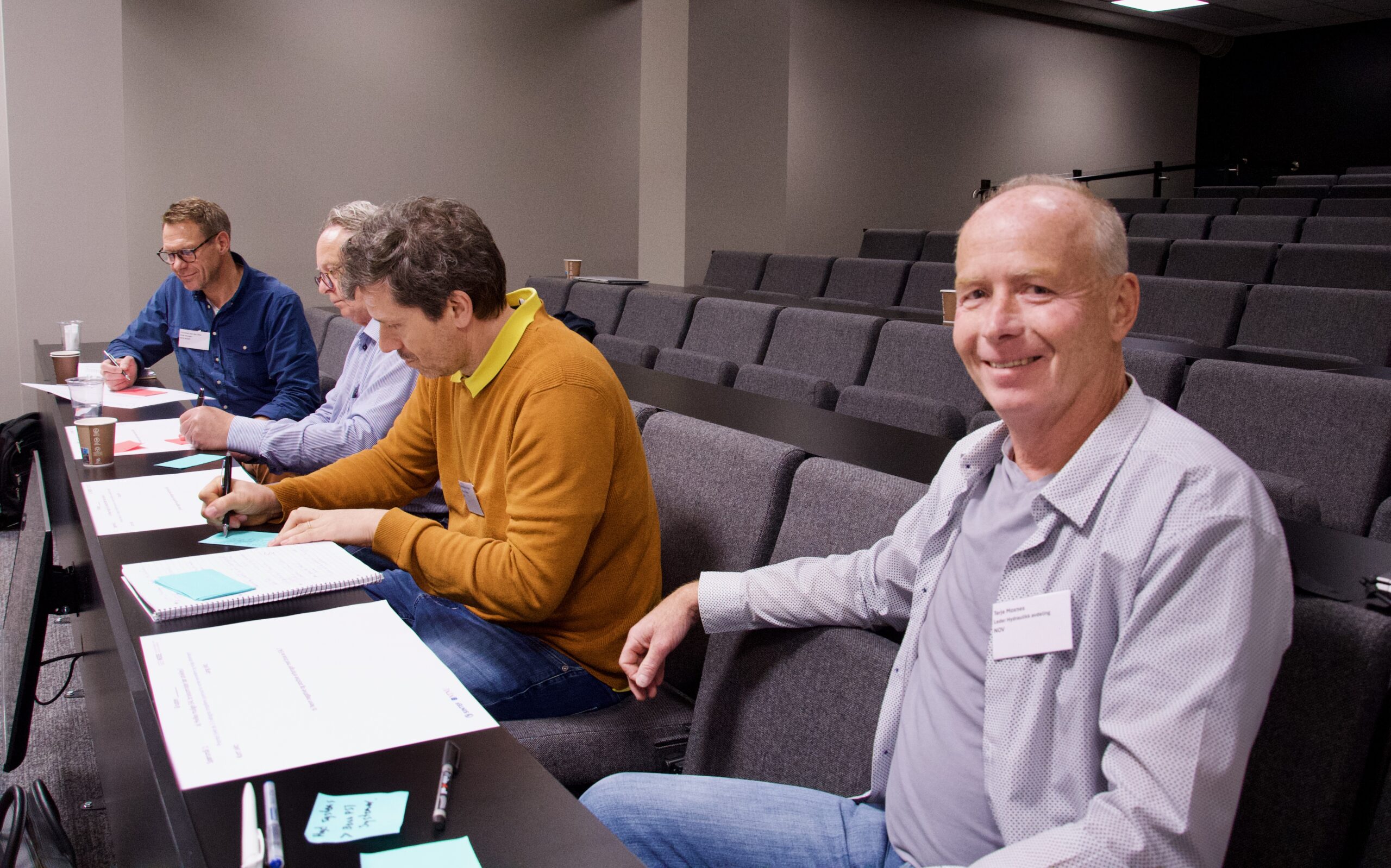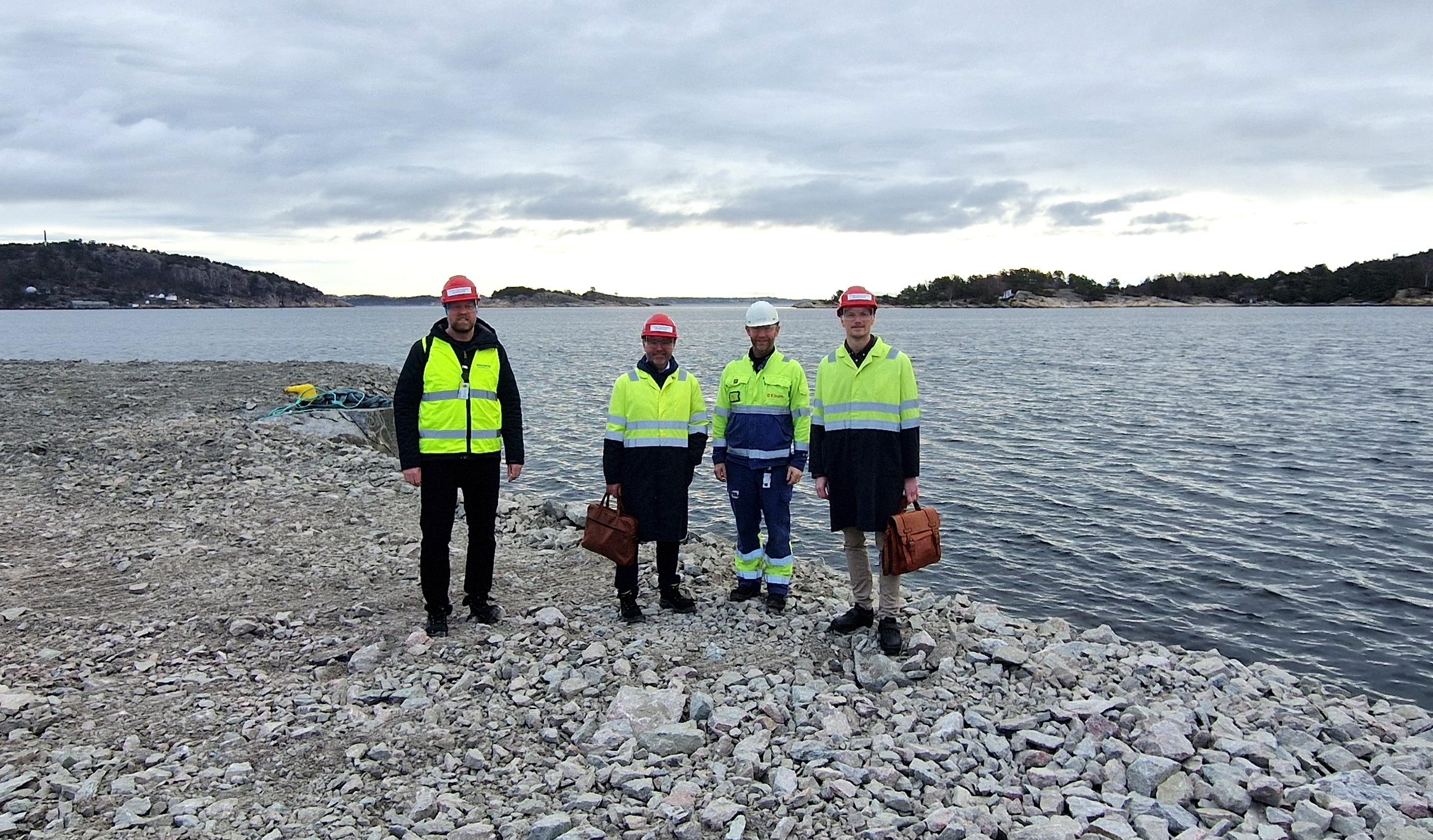Last week, representatives from the NOV, HMH and SLB – the three largest GCE NODE participants offering drilling solutions – took part in the Environmentally Acceptable Lubricants Workshop in Kristiansand. Servi Group, Vickers Oil (Imolo), and Lubrinor were also in the room.
Christian von der Ohe, RD&I Manager at GCE NODE, was pleased to have the major cluster companies present at the workshop.
“Environmentally acceptable lubricants have significant impact on the environment. We are trying to put together a large-scale research project which could provide us with the opportunity not only to reduce the global spill of toxic fluids, but also to develop lubricants with less friction. Less frictions translates to lower energy consumption and lower emissions,” says von der Ohe.
Industry players and research partners intend to apply for governmental support to find environmentally acceptable lubricants. The Norwegian research institution SINTEF and The Norwegian University of Science and Technology lead efforts to establish a Center for Research-based Innovation (SFI) for Environmentally Acceptable Lubricants (EAL).
“Lubricants and oils end up in nature in huge quantities and represent a direct and critical toxic effect on life in our oceans and lakes. It is a large-scale contamination of our common food supply, and it is high time to do something about this! With this SFI initiative, we encourage commitment to technology development and emission reduction, with a spotlight on environmentally friendly lubricants and recycling schemes for maritime industries,” says von der Ohe.
For Terje Moxnes, Head of Hydraulics at NOV Norway, biodegradable oils have been part of his professional life for more than 20 years. He has been actively involved in qualifying biodegradable oils during these years. However, the adaptation of such oils on rigs has been low.
“Unfortunately, biodegradable oils are more expensive than traditional oils. Going forward, we hope more clients will see the value and benefits of an environmentally better product,” says Moxnes.
NOV supports the SFI initiative and hopes it materializes.
“We are cheering on the SFI initiative. If successful with the bid, NOV will, with interest, follow the SFI and future developments within this area,” says Moxnes.
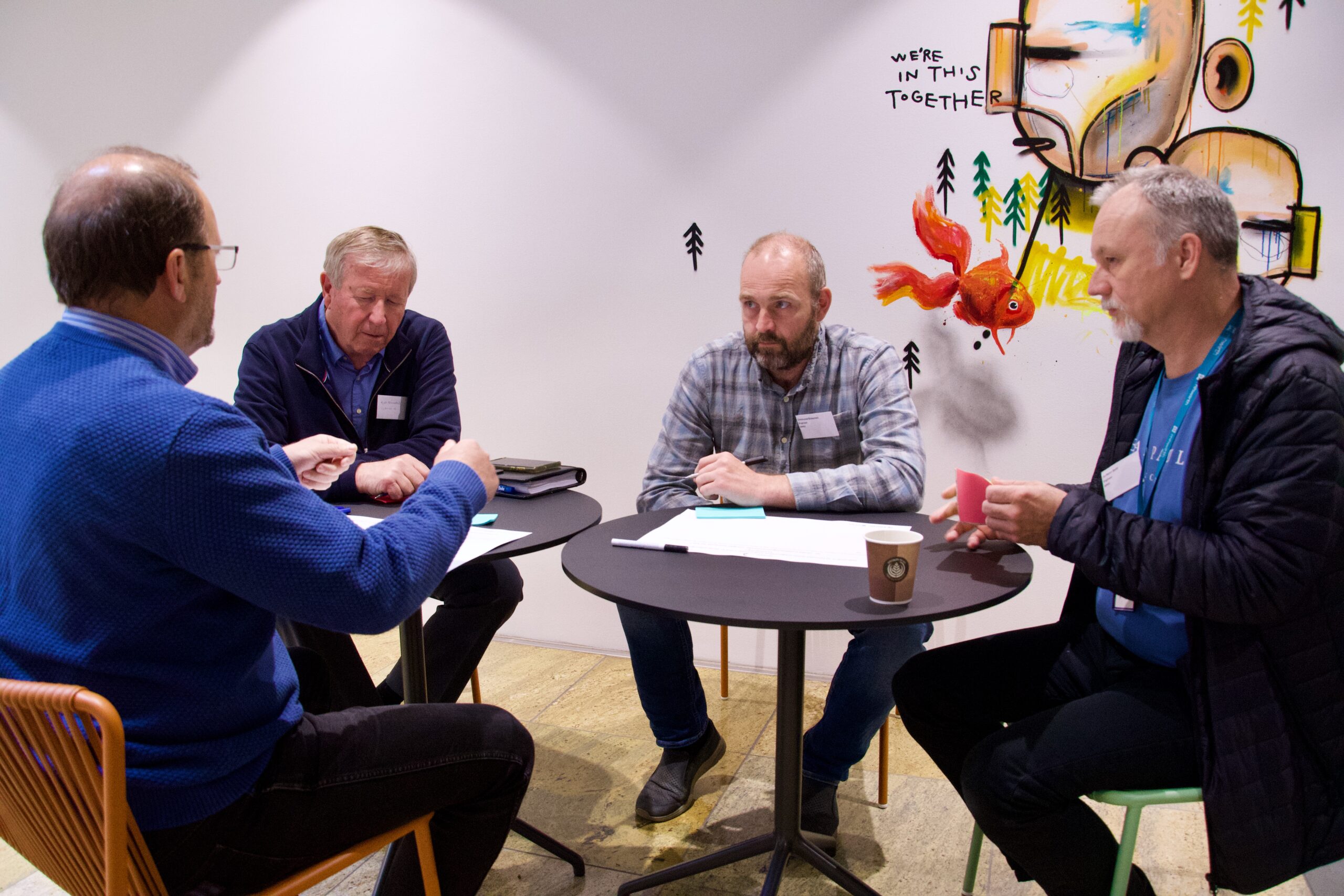
A Center for Research-based Innovation would develop expertise that is important for innovation and value creation.
The intention of the project is to expand the use of EALs in Norway by:
- Close collaboration with end users, lubricant manufacturers, public bodies, independent testing institutes and universities.
- Technology development for selected markets
- Recycling and refurbishing of EALS.
- Guidelines on lubricant usage (compatibility, environmental aspects, performance criteria)
- Guidelines on EAL usage for regulatory bodies.
- Educating PhD students with a focus on EALs, recyclability, formulation, green additives and specific industrial systems facing green transition issues.
- Establish master program on lubrication and EALs based on industrial input.
- Provide industry with research, building knowledge, independent testing and guidance.
The planned SFI would comprise eight work packages:
- Environmental Impact of Currently Used Lubricants
- EALs Collection
- Recyclability
- Hydraulic Fluids
- Maritime EALs
- Other Markets / Use Case Applications
- Dissemination and Outreach
- Project Coordination
